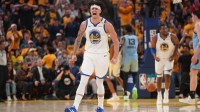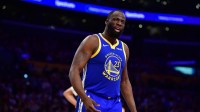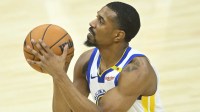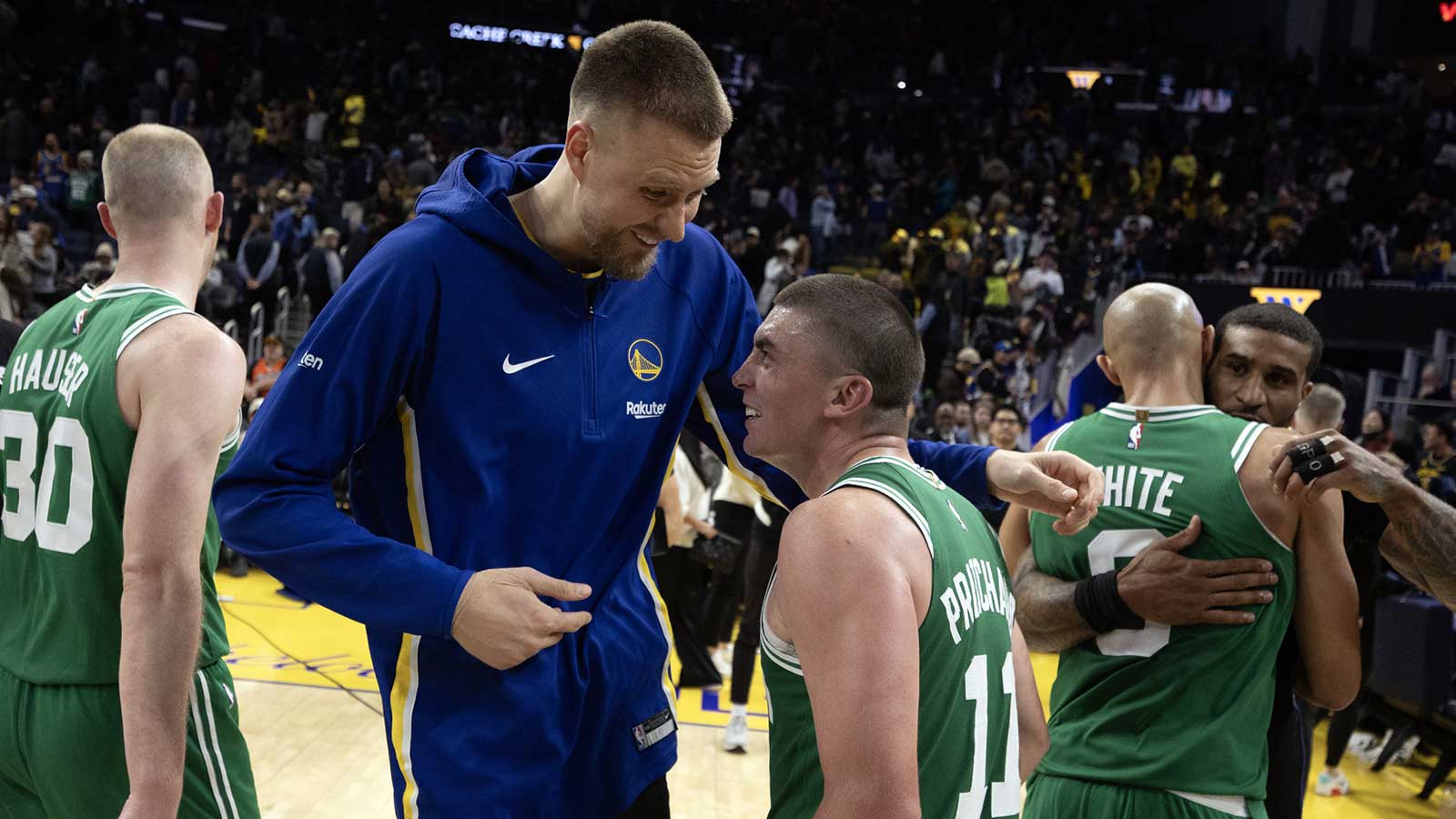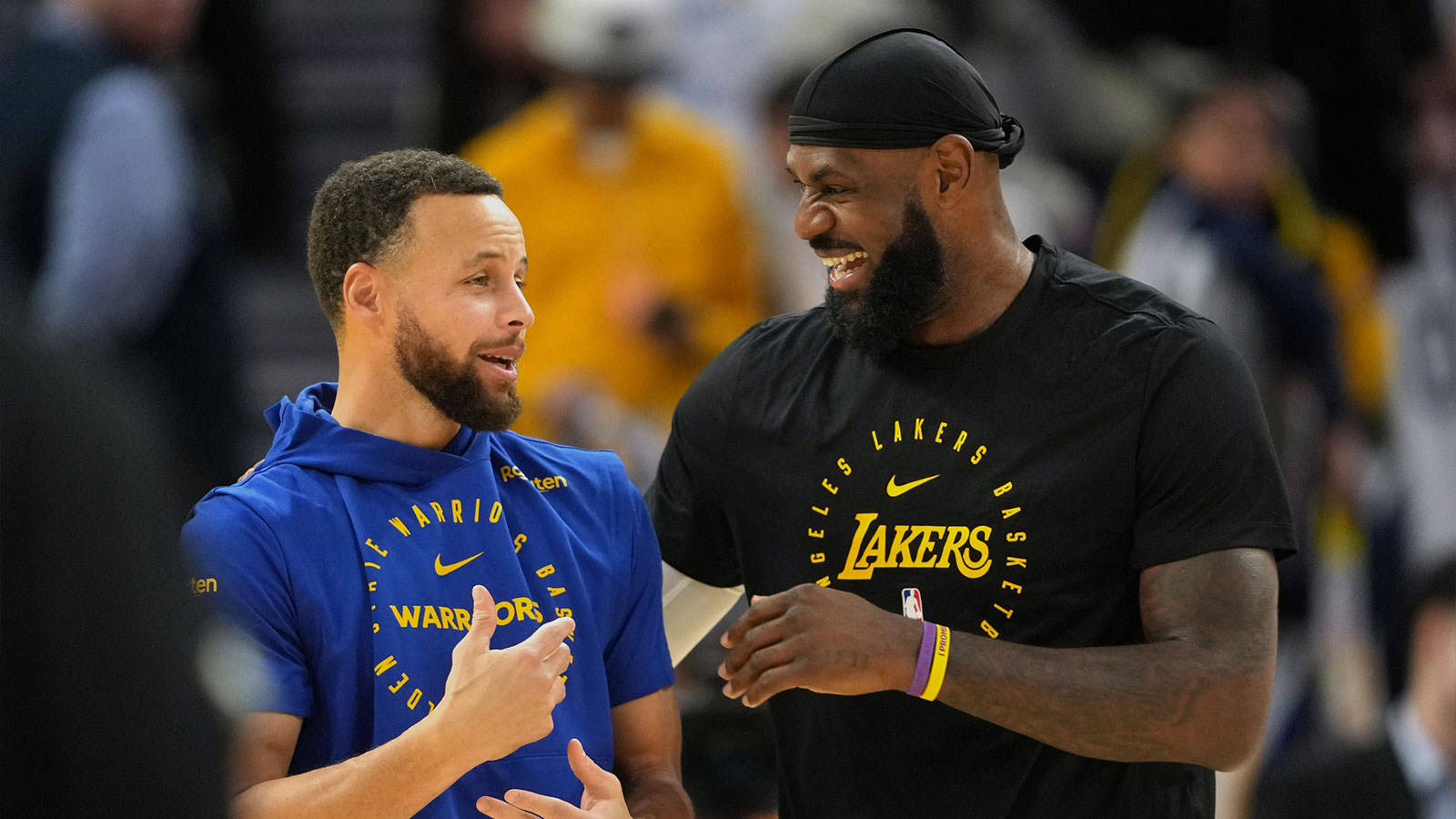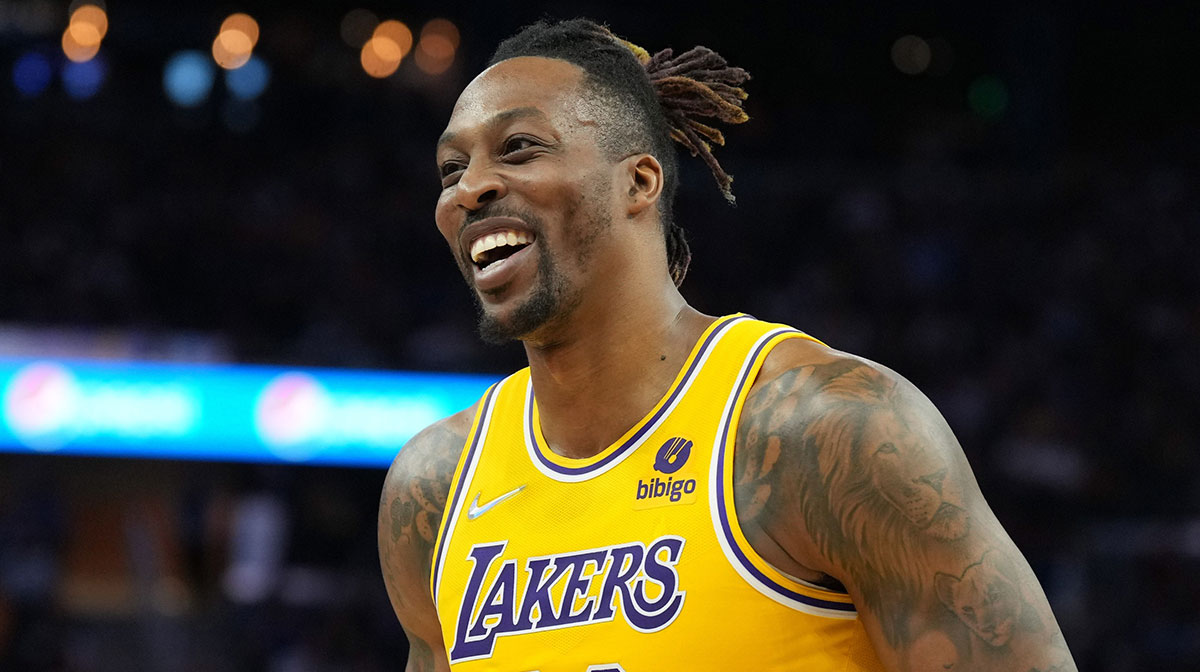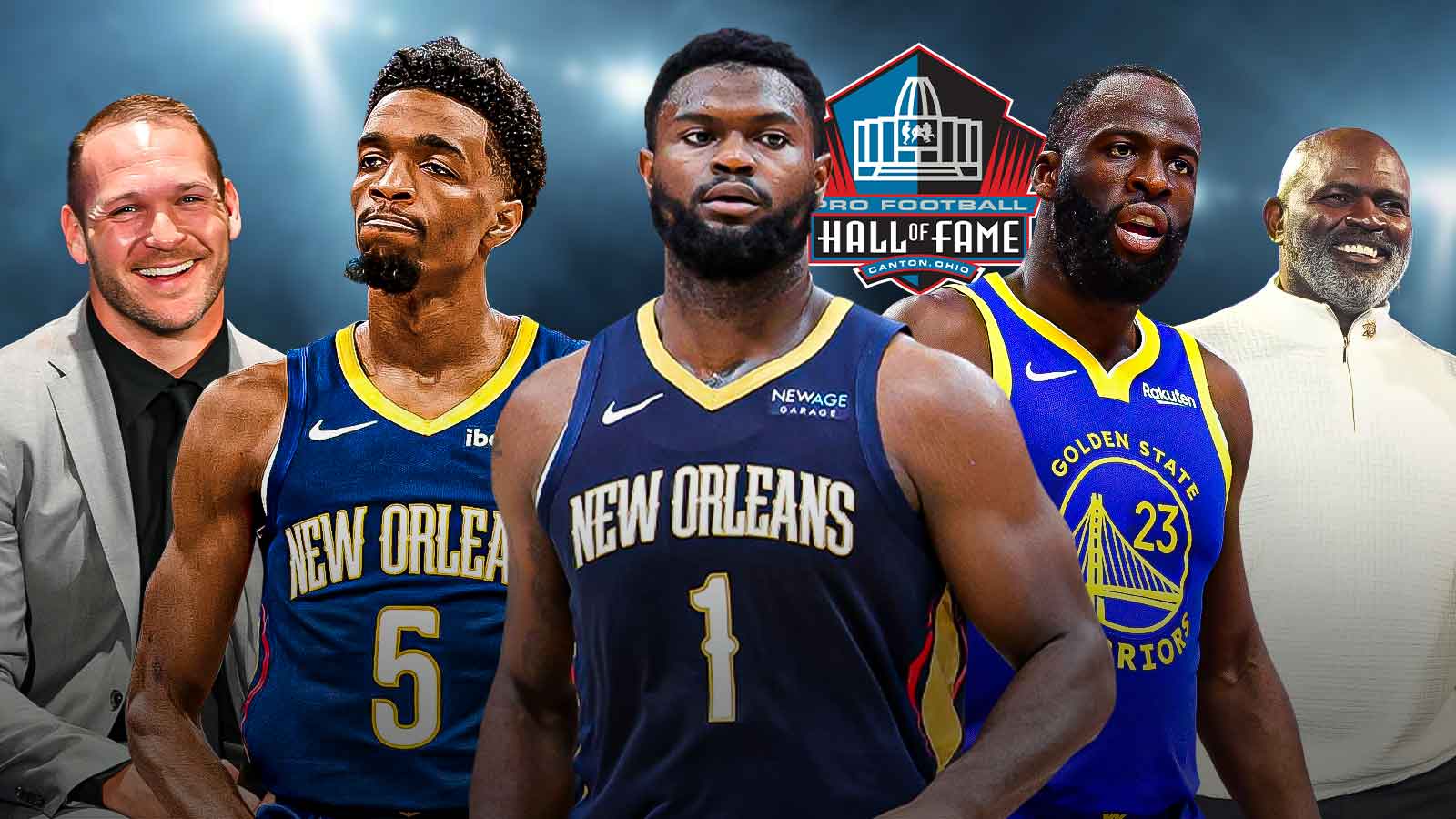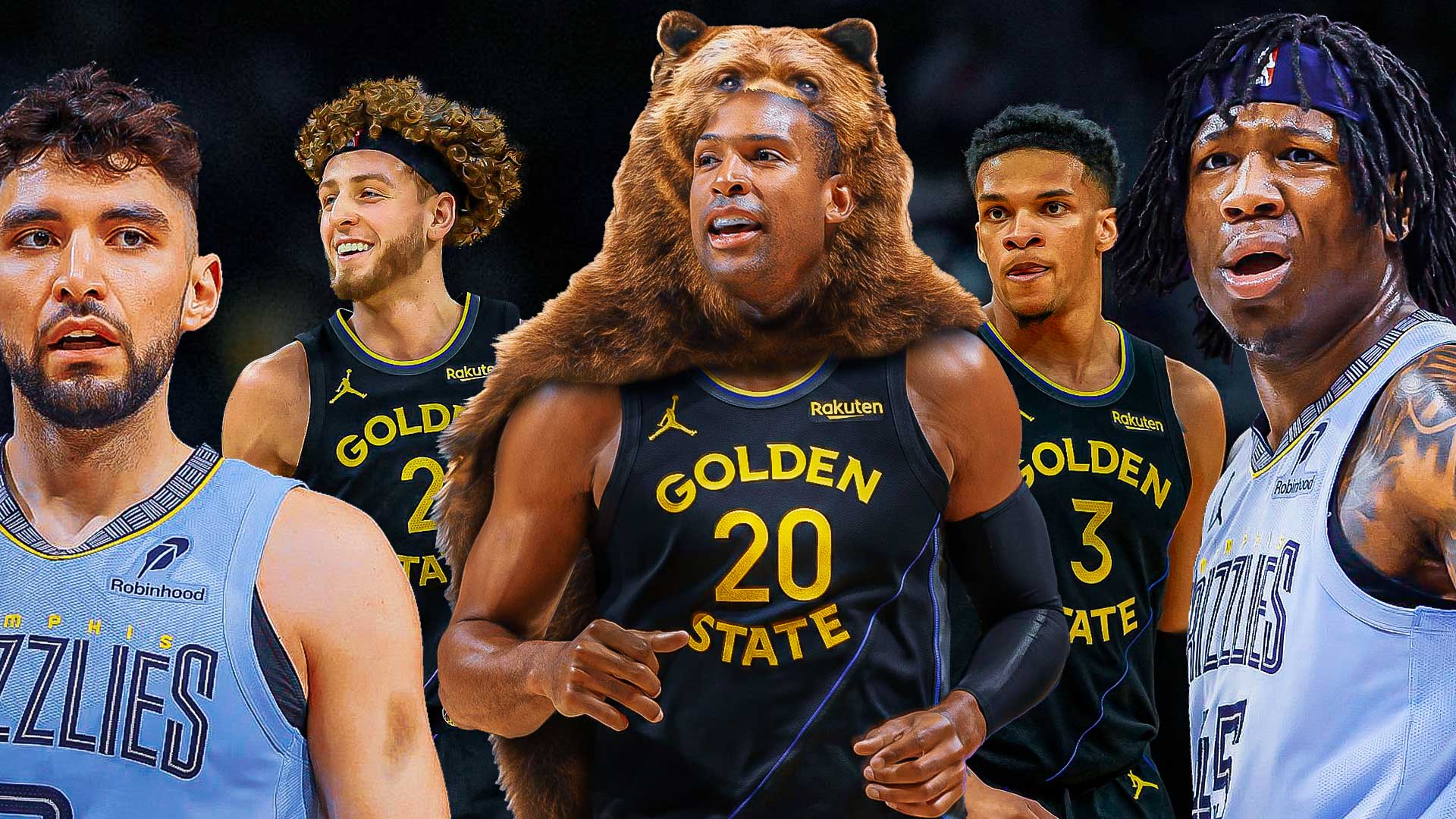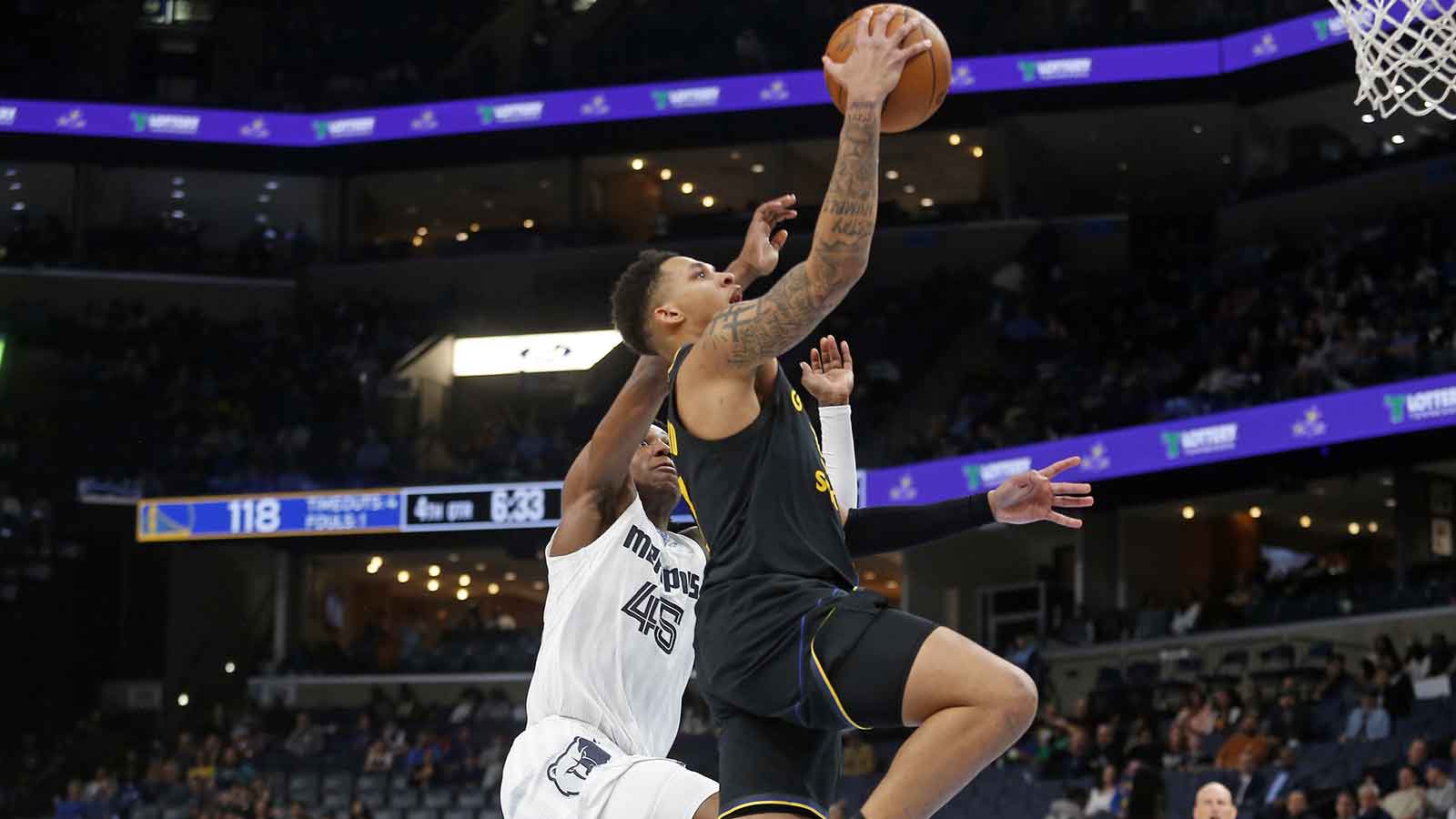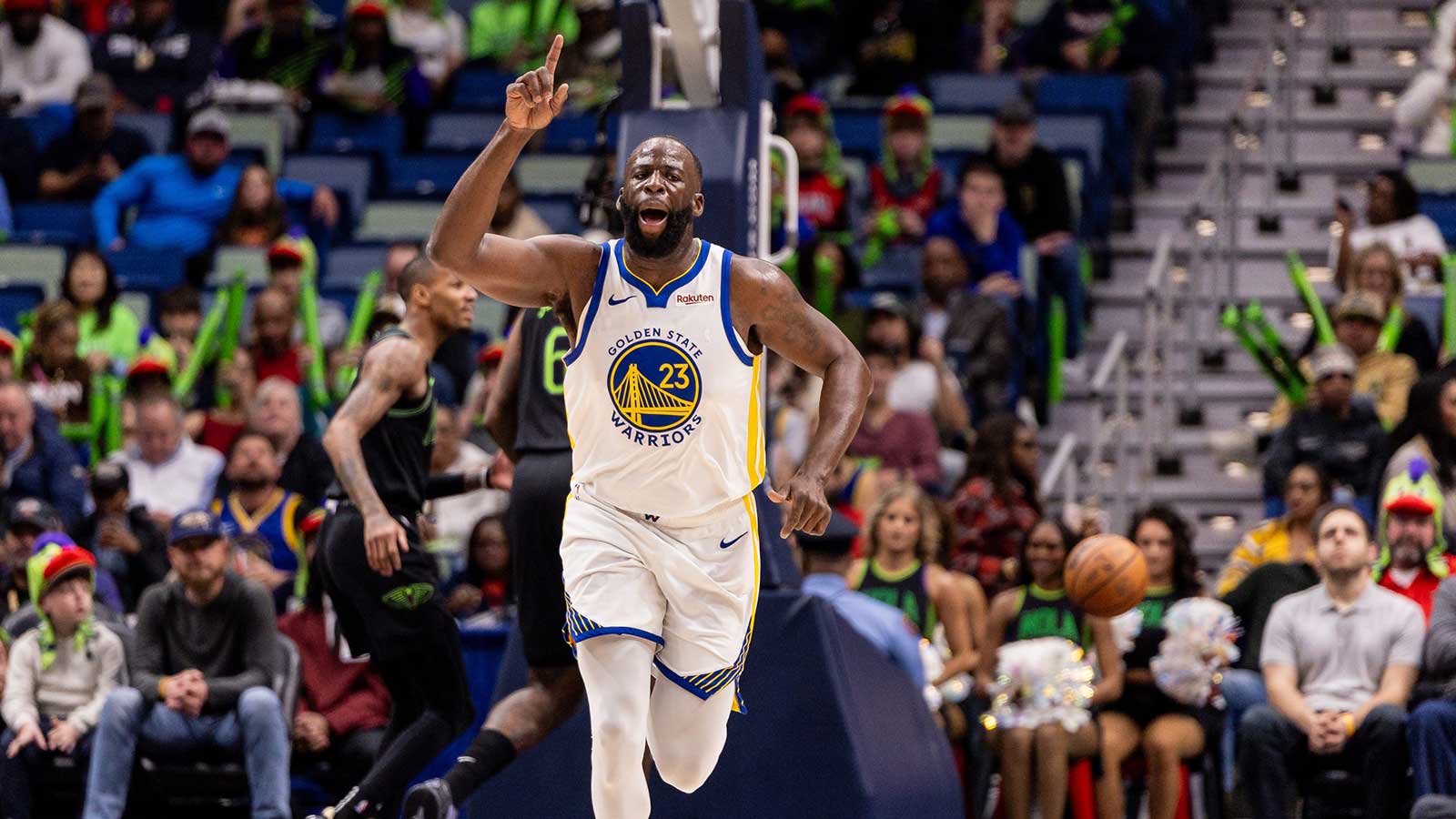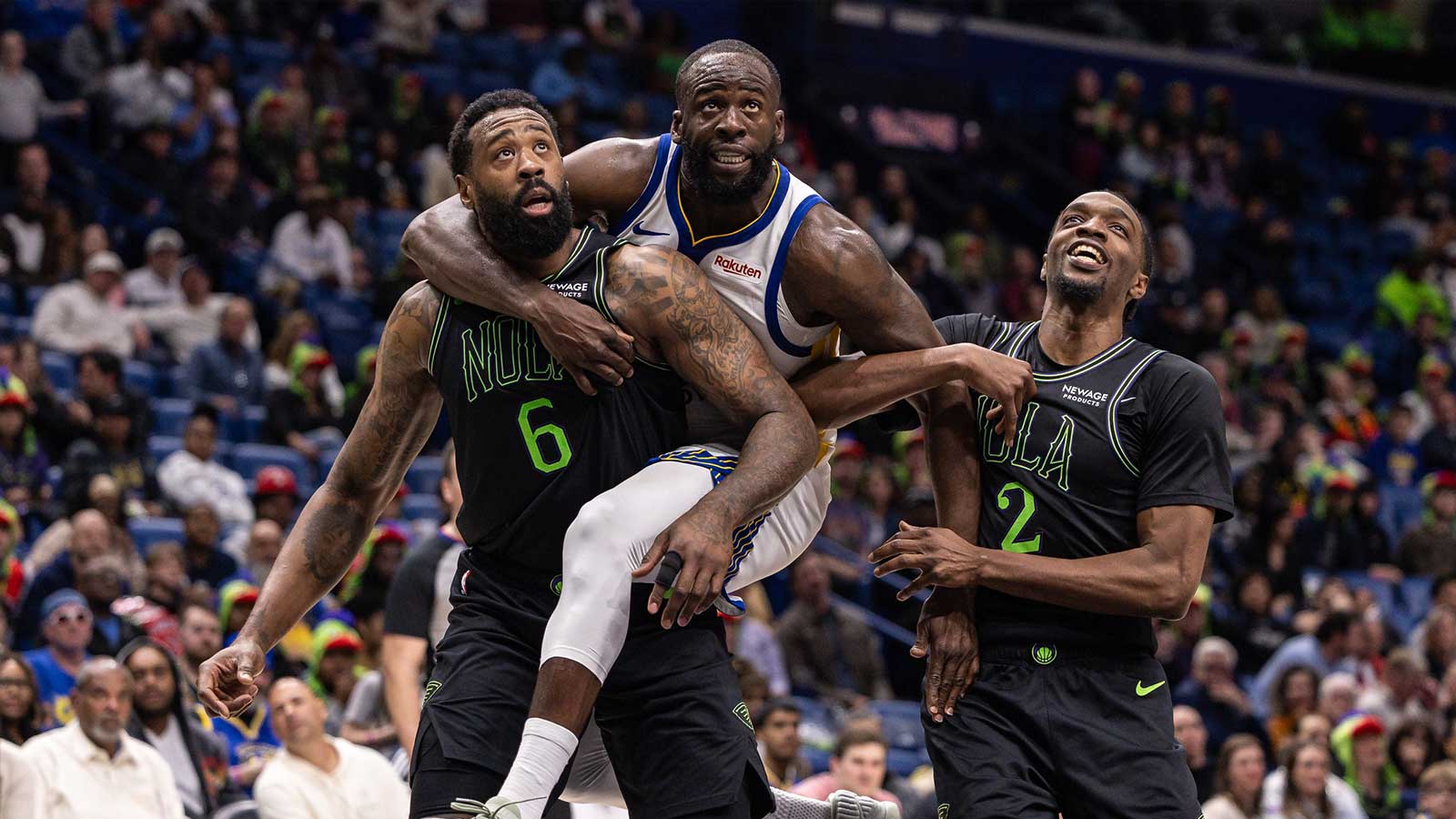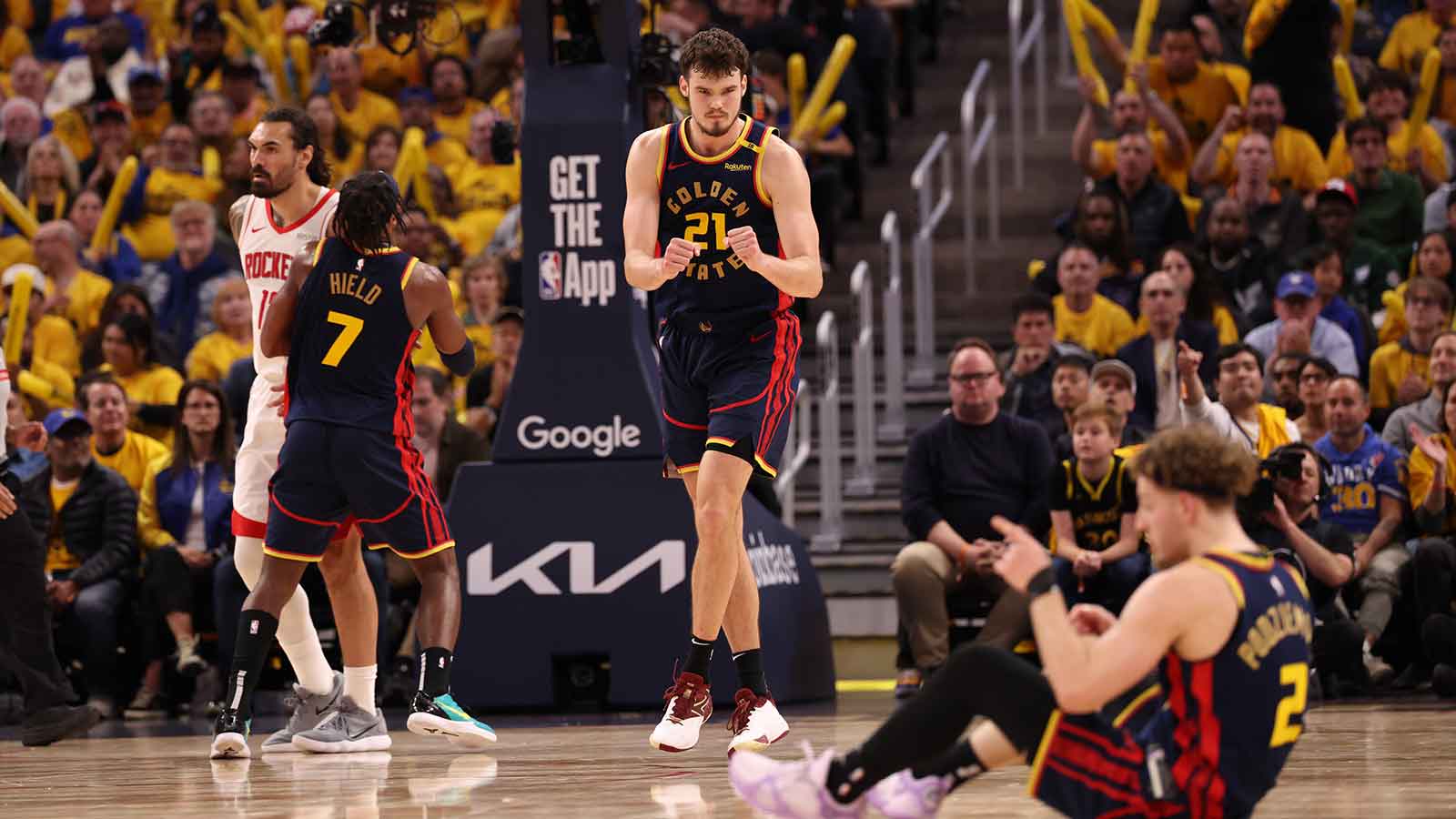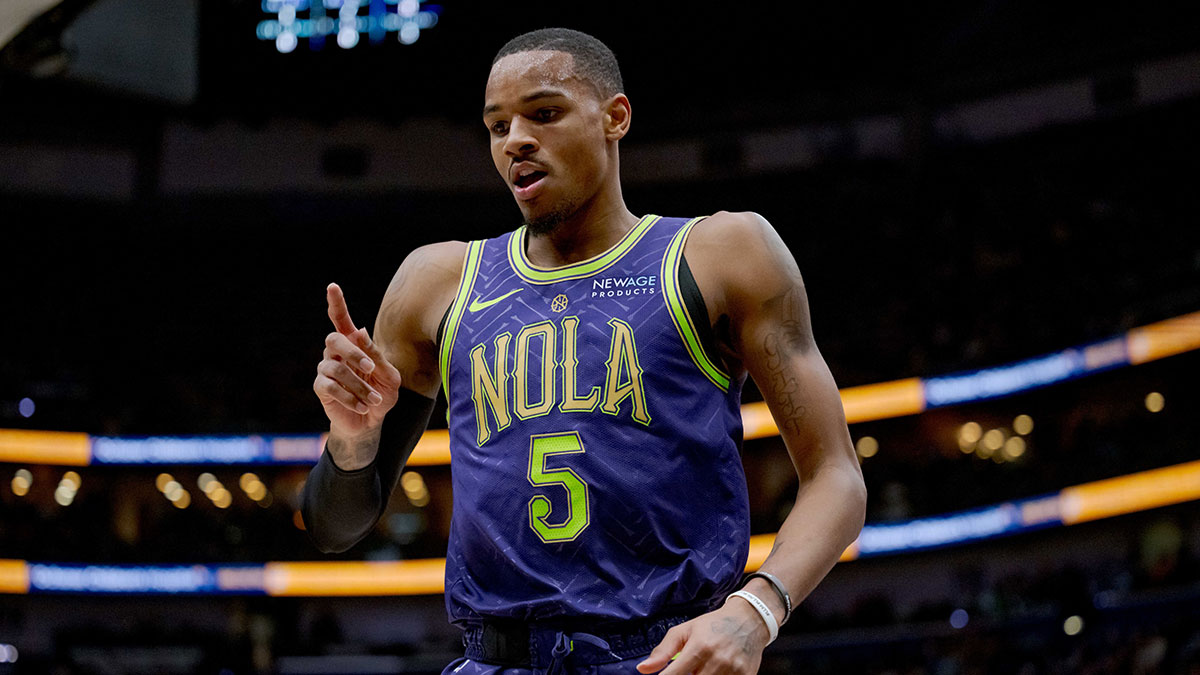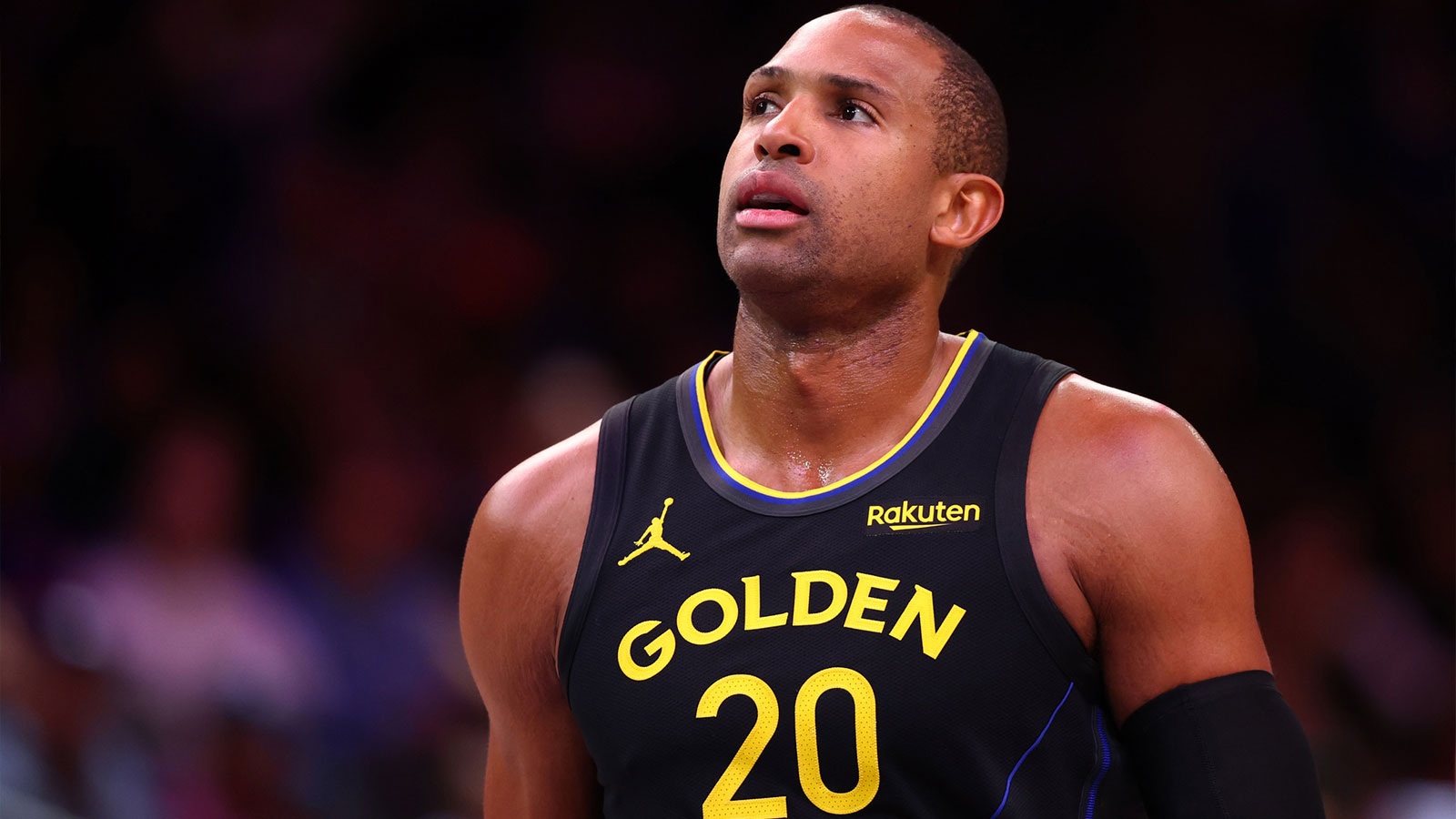It's no surprise Klay Thompson's historic play in the NBA Finals is being overlooked.
His place in the Golden State Warriors' individual hierarchy, both from the very beginning of their ongoing dynasty and certainly once Kevin Durant came aboard three years ago, has never been more than secondary, and oftentimes lesser. He doesn't break defenses in the mold of Steph Curry, unlock the two-way versatility that makes Golden State a juggernaut like Draymond Green, nor project the air of inevitability provided by Durant.
Thompson, unflappable as ever, just goes about his business, routinely draining the types of three-pointers most marksmen wouldn't dare attempt while hounding the opposition's top perimeter threat of the moment across the floor. No big deal. Except that against the Toronto Raptors, Thompson has transcended his status as basketball's steadiest supporting to star to quietly put together what should be considered one of the most remarkable Finals performances in recent memory.
The raw stats pretty much speak for themselves. Thompson is averaging 25.0 points, 4.8 rebounds, and 3.0 assists while shooting 52.1 percent overall and 57.1 percent from beyond the arc – on nearly nine tries per game. His effective field goal percentage, which takes into account the additional value of three-point attempts, is a mind-blowing 65.8 percent.
That ridiculous level of production and efficiency hasn't been approached by any player with a title on the line since LeBron James in 2014, and even he lagged just behind Klay Thompson in effective field goal percentage. Thompson's numbers aren't explained by two monster games sandwiched between two subpar ones, either. He's been the Warriors' only consistent player offensively in this series, never making below 42.9 percent of his shots, connecting on fewer than three triples, or scoring less than 21 points.
Of course, solely focusing on the offensive side of the ball does a major disservice to Thompson's impact. He's spent most of his time against Toronto chasing Kyle Lowry, but has also guarded Pascal Siakam a fair amount of time and even shifted over to Kawhi Leonard when Golden State needs a stop most. How many players in the NBA can be counted on to seamlessly toggle between checking a genius thick-bodied point guard, a live-wire power forward with uncanny finishing ability around the rim, and a massive wing superstar at the peak of his powers over the course of 48 minutes – not just during the regular season, but in June, too?
Thompson's unflinching reliability and stoicism, on frequent display for half decade in the playoffs now, can make it easy to take his on-court exploits for granted. He proved long ago that no shot is too difficult, no matchup is too daunting, and no stage is too big. He's improved his game as he's entered the thick of his prime, but Thompson's development has been more subtle than that of other star player of a similar caliber. He's stronger than ever, rarely getting bumped off his spots offensively or knocked off balance on the other end. He posted a career-low turnover rate during the regular season, evidence of a tightened handle and complete comfort in Golden State's flow offensive attack. The butt of jokes for his awkward struggles to finish early in his career, he's grown far more comfortable using his off hand around the rim, and shown body control while airborne that simply wasn't there during his first few years in the league.
Not every All-Star can be a primary creator, and no one familiar with the limits of his game ever expected Thompson to evolve into that type of player. Still, that reality has lended itself to a sense among some league followers that Thompson hasn't gotten meaningfully better over the course of his career. Wrong. The truth is he became such a devastating long-range shooter and dogged one-on-one defender so quickly that any strides he would take in the future were always bound to be more subtle than obvious. There was only so much room for the best three-and-D archetype of all time to improve, and Klay Thompson, somehow, has managed to pull it off, and Golden State possesses a puncher's chance to win an unprecedented fourth title in five seasons because of it.
The Warriors barely held onto a double-digit lead in Game 2, spurred by a time-honored third quarter run, after Thompson was forced to leave the game with 7:59 left and Nick Nurse pulled out the first box-and-one in Finals history. He missed Game 3 with a left hamstring strain, and Golden State lost by 14 at Oracle Arena despite 47 points, a personal-best in the playoffs, from Curry. Forty-eight hours later, he dropped 28 points on 11-of-18 shooting, not committing a single turnover and draining six of his team's eight total triples.
But most indicative of Thompson's resolute brilliance was the second half of Game 5, when the Warriors' dynasty was on the brink of collapse after a tragic injury to Durant seemed to spell imminent doom at Scotiabank Arena. Instead, Thompson scored 14 of his 26 points after intermission, using just nine shooting possessions, and saved his two-way best for when his team needed it most.
After Leonard went on a would-be classic 10-0 personal run late in the fourth quarter, Golden State suddenly found itself in a 103-97 hole with just under three minutes remaining. The Warriors responded with a 9-0 run of their own courtesy of three triples from the Splash Brothers, Thompson's pair of off-dribble makes from the left wing bookending Curry's catch-and-shoot from the same spot. Just as significant, Steve Kerr switched him onto Leonard after the latter's outburst, and Thompson proceeded to hold the presumptive Finals MVP scoreless, forcing him into an air-balled fadeaway, contested pull-up three, and to give the ball up on the game's last possession after stone-walling him on a drive, allowing Andre Iguodala the chance to offer an aggressive double-team.
Imagine if the script was flipped, and it was Leonard who brought his team back from a six-point hole by drilling a pair of pull-up threes and locking up Curry on the other end. It would have been the defining moment in the career of a two-time Finals MVP, the stuff that further cemented his legend not just in Canada, but across the globe irrespective of what he decides in free agency this summer.
But for Klay Thompson, it was just another epic two-way sequence in a Finals and career that will no doubt continue to be marked by more of them, whether the masses give him proper credit for it or not.




